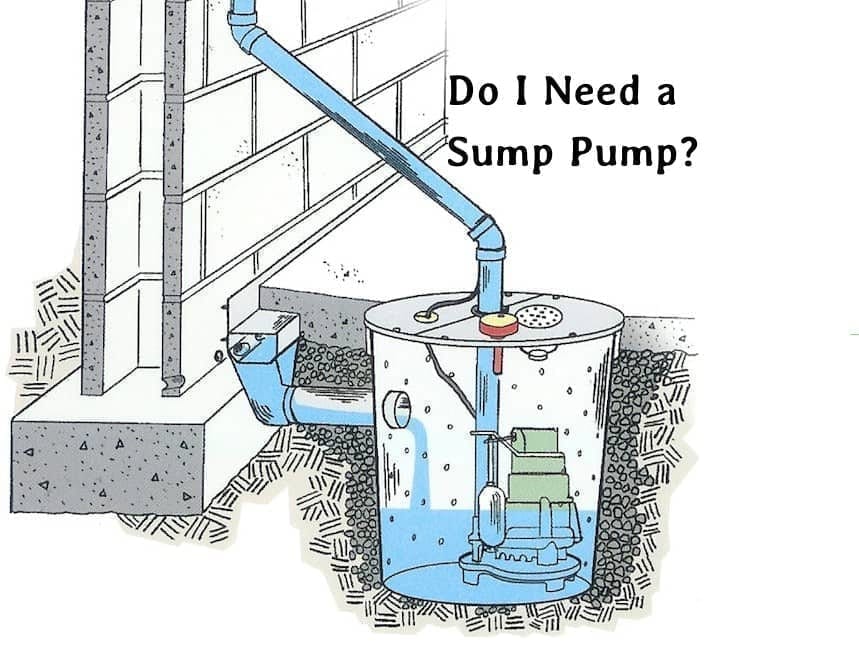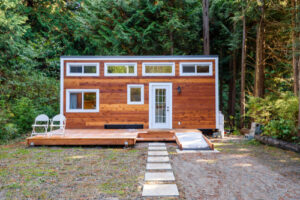Having a sump pump system could help prevent water claims in your basement. But, what exactly is a sump pump, when do you need one and how do they work?
In fact, many insurance companies will give you a discount if you have a sump pump. Sometimes, even further discounts if you have two!
What is a Sump Pump?
A sump pump accumulates water in a sump basin which you will commonly find in the basements of homes. The pump then pushes the water back out to the exterior of the home, preventing flooding and costly damages.
How does water get into the basement?
There could be any number of reasons why water may enter your basement. It could be via the perimeter drains of a basement waterproofing system, funnelling into the basin or because of rain or natural ground water, if the basement is below the water table level.
One of the main ways water enters a basement is also the easiest fix: exterior grading or lack of proper eavestroughs and downspouts. Simply fixing these as part of your exterior landscaping could eliminate many water related issues in your basement.
What’s the purpose of a sump pump?
Sump pumps are preventative measures that provide peace of mind for home owners. They’re also effective where basement flooding happens regularly and to solve dampness where the water table is above the foundation of a home. Sump pumps send water away from a house to any place where it is no longer problematic. It could be particularly helpful with concrete block foundations.
In older homes, the water should pump into the sanitary sewer system. However, this is now against the plumbing code as it overwhelms the municipal sewage treatment system. Municipalities urge home owners to reroute their existing pumps to another locations. This will help ease the burden on the treatment system.
If you’re considering doing renovations on an old home, it would be a good thing to add a sump pump (in some municipalities it’s mandatory). Also remember to ask your realtor if they know the water table or likelihood of flooding in the area.
What is a Sump Pit?

A sump pit is literally a hole in the ground that collects excess water that may come from the ground. Water flows into the sump pit through drains or by natural water migration through the soil. If you live in an area with a high water table, it’s possible you’ll always have high water level in the pit. The sump pump’s job is to pump the water out of the pit and away from the building so the basement or crawlspace stays dry.
This sump pump pit type of drainage system accommodates for groundwater to gather in a hole instead of providing you with a flooded basement floor.
How Do You Know If you Need a sump pump?
Not all Guelph homes for sale have a sump pump because not all homes require one. If your home is prone to basement flooding, installing a sump pump will help remedy the situation and protect your home from future flooding. Additionally, if your home meets any of the following, you should have a sump pump installed.
Also, you won’t find a sump pump in styles of homes that don’t need them (condos, for example). Sump pumps are pretty much exclusive to detached homes, although you will find them in some townhomes.
- If your basement has already flooded once before, it’s a good idea to install a sump pump as a preventative measure.
- Your home is built on flat ground with soil that traps water easily.
- You live in a climate that has large quantities of heavy rain and/or snow.
- You have a finished basement that you want to protect against water damage.
Above are just some of the reason why you should install a sump pump in your house. Ultimately, it would be best to have a certified plumber in to inspect your house and give their opinion.
Where can I buy one?
If you’re planning on installing a sump pump yourself, most hardware stores carry sump pumps. Consider shopping local and buy your sump pump Canadian Tire, Home Hardware or RONA. Alternatively, you can buy a sump pump Home Depot. Be sure that you know what you’re doing if you plan to install it yourself!
The best way is to hire a professional to install one, most plumbers in Guelph could help. They’ll assist with finding the right sump pump for you, as well as the installation.
Different types of sump pumps
There are two types of pumps, pedestal and submersible. A pedestal pump uses a motor that mounts above the pump. Because of this, it is easy to service and more visible. There is a long, vertical extension shaft that connects the motor to the impeller. In the case of a submersible pump, the motor mounts inside the pump. There are pros and cons to each. Pedestal pumps usually last longer and are cheaper but are less conspicuous. Submersible pumps don’t last as long but can take up debris without clogging. They are also less visible since everything is in the pump.
Installing a sump helps prevent basement flooding from occurring. While a having one won’t prevent water from coming in, it helps with getting it out, preventing it from collecting and pooling underneath your floor. With an automatic switch, the sump pump immediately pumps the water out which helps to protect your basement from flooding.
Components of a sump pump

In this post from Home Help, they offer a diagram on the components of a sump pump as shown below. This includes such components as a check valve, a float switch and float.
All of these components work together to ensure that the common issues of water in a basement area are mitigated.
Alternatives to a sump pump
A sump pump is not always the answer. There are many other options to stop water from entering your home through the foundation. You should consider and investigate this first! It may be the true fix in order to stop water from getting into the house in the first place!
Installing a sump pump can be a big and literally messy job. Another solution may be just as efficient for less money. Take a walk around your house to see if you see anything unusual. On the outside, ideally your home would have some sort of waterproofing system that would prevent water in the first place.
Of key importance is to ensure that all grading goes away from your house. Another source of exterior water penetrating the basement walls is a garden hose that is left on or drips. You should also do a walkaround your house to ensure that the foundation is not allowing moisture. This should be done in the spring if the winter months get snow. Once it melts, water running down the foundation is the quickest way for water to penetrate the walls.
Reduce exterior and interior issues- free and easy!
A home inspection will tell you that grading that goes towards/ into the house is the most common water issue in homes. This fix is almost free and may be the source of water in your basement!
Also, investigate eavestroughs and drains to ensure they are functioning properly and that there is not a drainage issue. Make sure they bring water away from your foundation as far as reasonably possible. And if a walkway, patio, or pool deck slopes toward your house instead of away from it, they are contributing a ton of water into a foundation.
Some contractors and products can re-level slabs so they drain away from the house. You can install and remove many types of patios with proper slope at minimal expense. If pouring a concrete driveway, ensure it drains away from the house and that there is no gap between the driveway and house.
On the interior of your home, carefully check all items that are a source of water to ensure that they aren’t leaking. Things like a washing machine, water softener or water heater are often located in the basement. Showers, tubs and other items that have a high volume of water and used on a regular basis can be a real issue. Also be sure that your toilets are flushing and draining properly, because a backed up sewer line could cause significant flooding.
Contact the Beth and Ryan Real Estate Team
If you have any questions or would like to know if your current house or a house you are looking to purchase, requires a pump, do not hesitate to reach out to Beth and Ryan, Guelph real estate agents. They would be more than happy to answer any questions and direct you to Guelph plumbers.
This post is part of a series of 16 things you should consider when buying an old house.
Alternative spellings: Sumpump, Sumppump, subpump



